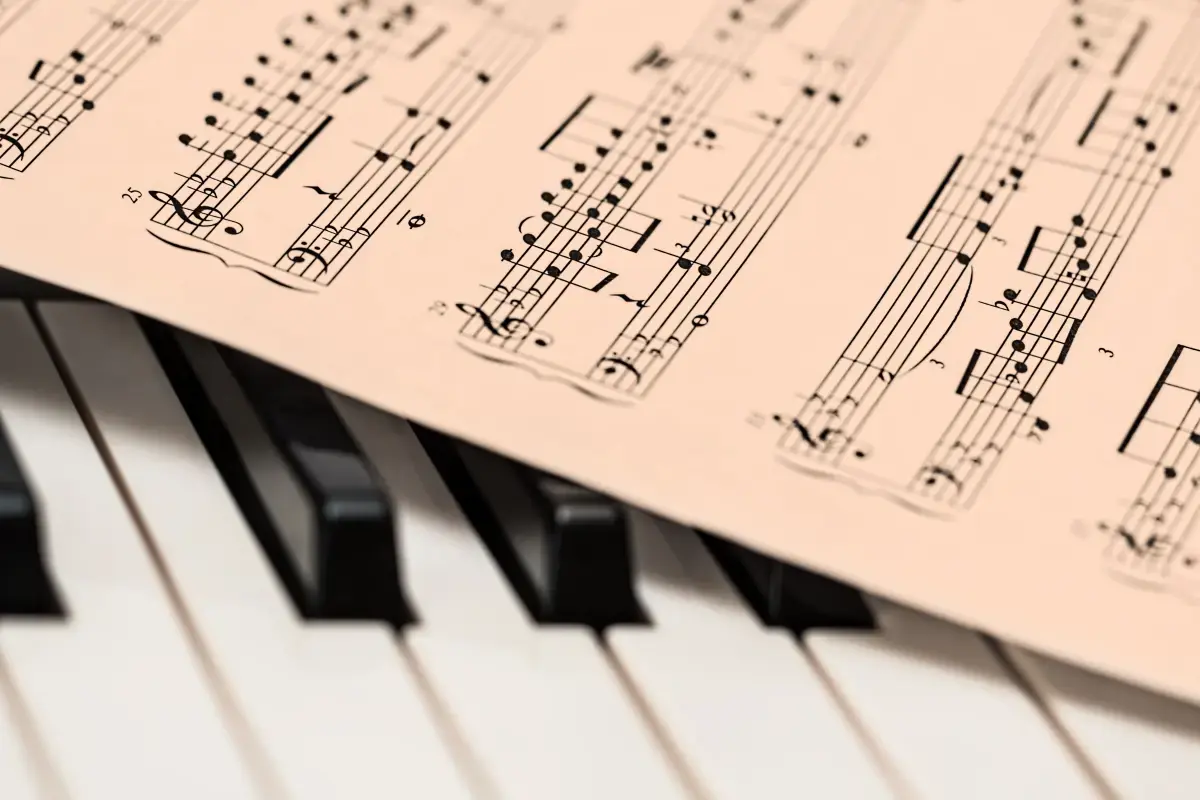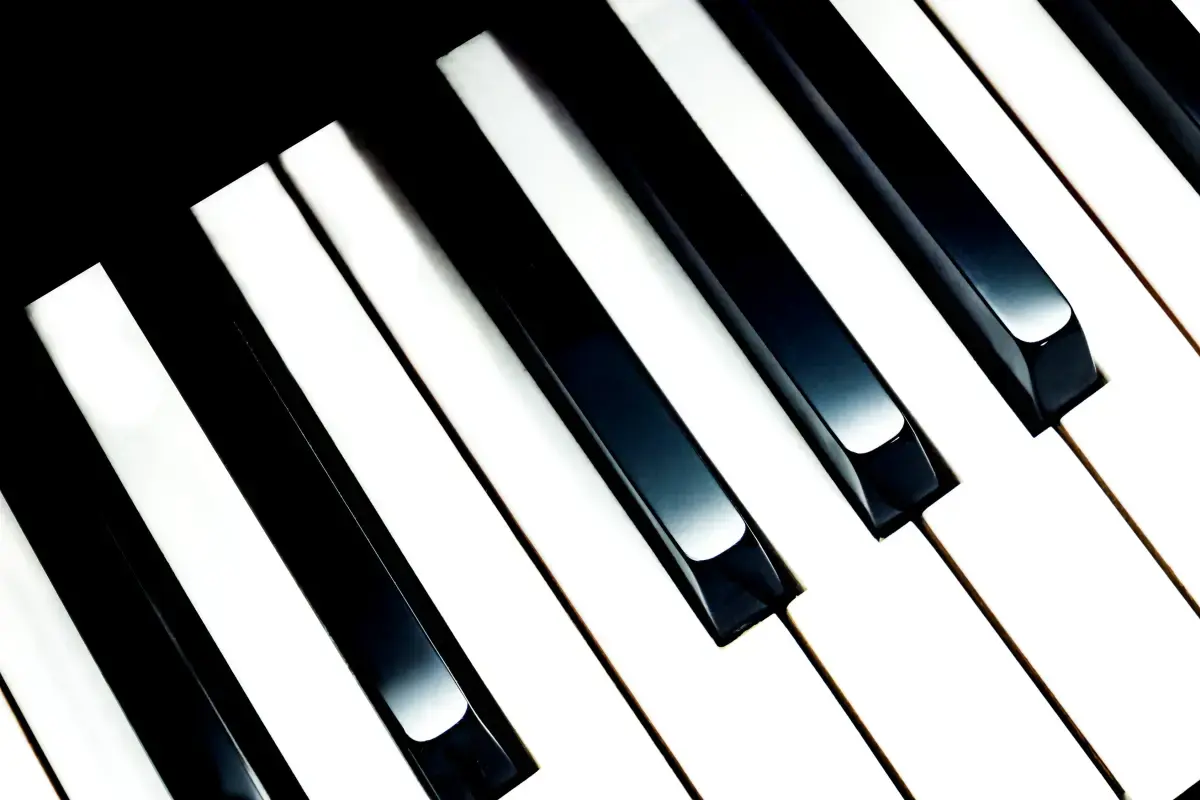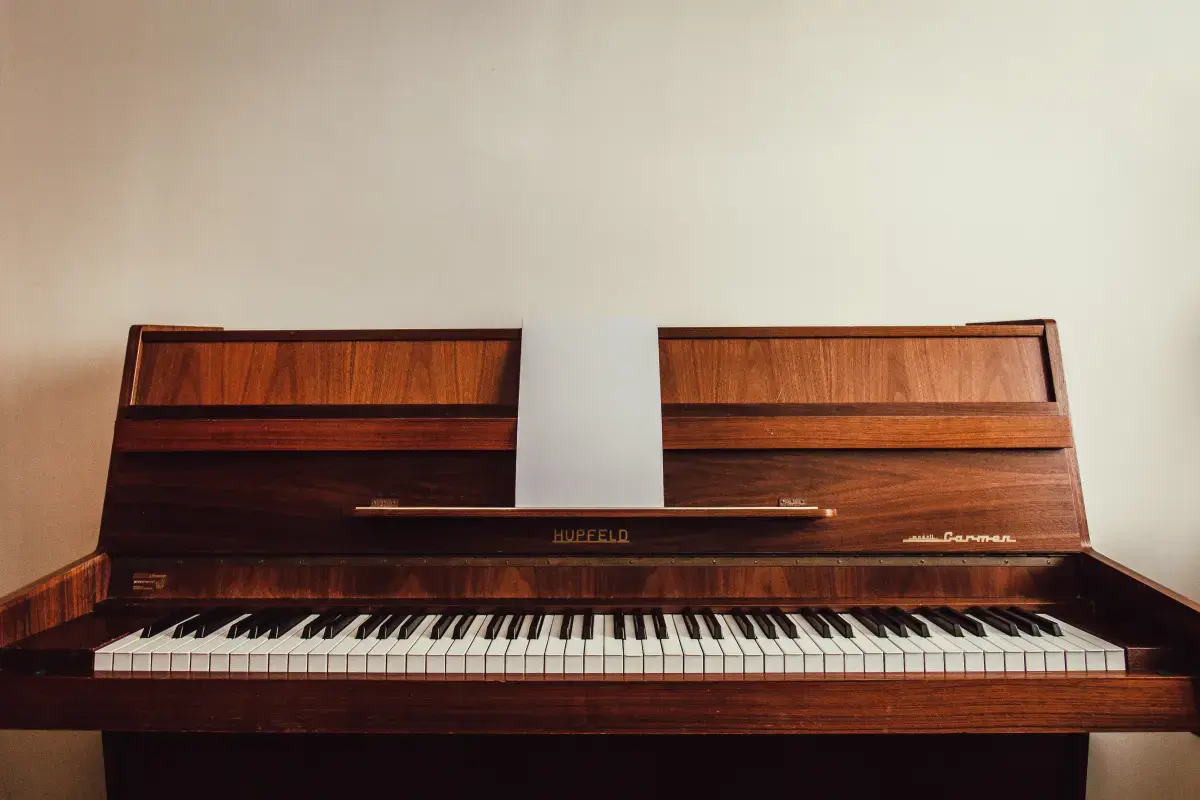
Pianist Job Description
What is a Pianist Professional?
A pianist is a musician who plays the piano. The piano is a musical instrument that is played by pressing keys on a keyboard. Pianists use their hands and fingers to play the piano. They may also use their feet to pedal the piano. Pianists may play alone or with other musicians. When they play with others, they often act as the accompaniment for singers or other instrumentalists. Pianists may also play in orchestras, bands, and solo recitals. Pianists usually begin taking piano lessons at an early age.

What does a Pianist Expert do?
They typically study music theory, ear training, and sight-reading along with technique and repertoire. Professional pianists usually have a bachelors degree in music from a college or university. Piano playing can be physically demanding, so pianists need to have strong hand-eye coordination and stamina. They must also be able to control their muscles and movement to create the desired sound on the piano. Piano playing requires a great deal of practice and discipline.

What are the Skills of a Pianist?
A pianist needs a great deal of skill and experience to be able to play the piano proficiently. Firstly, they need to have a good understanding of music theory and know how to read sheet music. This will enable them to understand the structure of the pieces they are playing and also identify any tricky passages that might trip them up. Secondly, they need excellent finger dexterity and hand-eye coordination in order to be able to execute all the required movements accurately.

What makes an Expert Pianist?
Thirdly, they must have developed a high level of muscle memory in their fingers and hands so that they can play complex pieces without having to think too much about where their hands need to go. Finally, a pianist needs stamina and focus in order to be able to play for long periods of time without tiring or making mistakes.

What level of Experience & Qualifications are required to be a Pianist?
Industry Experience: 1. Involvement in professional performances or recordings with established artists/ensembles. 2. Participation in masterclasses, workshops and other learning opportunities for pianists. 3. Knowledge of the music industry, including marketing and networking strategies. 4. Familiarity with different genres of piano repertoire and performance styles (classical, jazz, contemporary). Training: 1. Regular practice to maintain technical proficiency on the instrument as well as musical expression and interpretation skillset development; this may include scales and arpeggios work, sight-reading exercises, improvisation techniques etc., depending on the style(s) being studied by a particular individual pianist’s goals/aspirations . 2. Working regularly with an experienced teacher who can provide guidance regarding technique/musicianship development while also helping to identify potential issues that need addressing before they become problematic during live performances (i.e., excess tension etc.). Qualifications: 1) A recognized diploma or degree from a conservatoire or university in piano performance or related field such as music theory / composition is usually required for entry into professional level positions within the music industry; however some employers may accept an equivalent qualification obtained through self-study instead (though it should be noted that these will typically not carry any formal recognition). 2) Professional memberships from organizations such as The Associated Board of Royal Schools of Music (ABRSM), International Association for Jazz Education (IAJE), American Federation of Musicians (AFM), etc., are often advantageous when pursuing career opportunities within certain areas of specialization – particularly if they require specific expertise which cannot be easily obtained without them!Education: 1) In addition to qualifications mentioned above, having a good understanding of classical harmony & counterpoint theory is essential for those wishing to pursue more advanced levels within traditional ‘concert’ repertoire – especially when working towards higher grades examinations offered by ABRSM & similar bodies around world; knowledge about various composers’ styles will also help inform interpretations & develop artistic sensibilities accordingly . 2) It is important too that aspiring experts keep up-to-date with developments both inside & outside their chosen genre so they remain informed about what else is happening musically at any given time – attending concerts/recitals whenever possible should form part Of this process!

What is the Salary of a Pianist?
The salary expectations of a pianist vary greatly depending on the experience level and type of work they do. Junior Pianists: Junior pianists typically earn around $20,000 - $30,000 per year. This is usually for those with limited experience or who are just starting out in their career. They may be employed by local music schools as part-time teachers, or may perform casually at events such as weddings and parties. Mid-Level Pianists: Mid-level pianists can expect to make anywhere between $30,000 - $50,000 annually. These musicians often have more experience and are able to find regular employment performing concerts and recitals in larger cities or teaching private lessons at higher rates than junior players would command. Senior Level Pianists: Senior level pianists can expect to command salaries well into the six figures per year ($100K+). These players usually have extensive performance credits under their belt from years of professional playing, accompanying singers and touring extensively with bands/orchestras etc., making them highly sought after performers that command top dollar for their services.

What are the Working Conditions for a Pianist?
Working conditions for a pianist can vary greatly depending on the type of work they are doing. Generally, however, most pianists will have to practice regularly and attend regular rehearsals in order to stay proficient with their instrument. Additionally, many pianists will also be expected to perform live concerts or shows as part of their job. This would involve traveling from venue to venue and could require long hours with little rest in between performances. Pianists may find themselves working in a variety of settings including churches, schools, theaters, clubs and other venues that host musical events. They may need to be able to adapt quickly as different venues often present different challenges such as acoustics or lighting issues that must be addressed before performing. In addition to playing their instrument live in front of an audience, some piano players may also record music for radio broadcasts or studio recordings which involves additional time spent practicing parts until perfection is achieved and then recording them multiple times until the desired sound has been produced. Recording sessions can involve long hours and intense concentration so its important for a pianist to remain focused throughout the entire process in order ensure quality results are delivered every time. Finally, like any musician who works freelance gigs rather than having one consistent employer there is always a certain level of uncertainty when it comes to income stability as jobs can come and go at any given moment due unforeseen circumstances such as cancellations or lack of demand for particular types of performances (i..e classical vs jazz). For this reason it’s important that all musicians understand how best manage their finances while still allowing enough room within the budget for leisure activities too!

What are the roles and responsibilities of a Pianist?
A pianist is responsible for providing accompaniment to singers and other instrumentalists.
A pianist may also be responsible for leading a musical ensemble.
A pianist must be able to read music and understand its structure and form.
Pianists must have a strong command of harmony and counterpoint.
A pianist must be able to improvise, both melodically and harmonically.
A pianist should have a large repertoire of music, both classical and popular, that they can perform at a moments notice.
Pianists should be able to transpose music into different keys, as needed.
Pianists need advance sight-reading skills in order to quickly learn new pieces of music or new arrangements of familiar pieces..
Pianists need specialized techniques unique to the piano in order to produce the desired sound or effect..
Pianists need stamina and endurance in order to play long pieces or multiple pieces back-to-back without tiring..
Pianists must be able to control their dynamics (volume) throughout a piece, from loudest sections to very soft sections..
In jazz piano playing, pests must have a solid understanding of chord progressions and improvisation..
In blues piano playing, pests understand how tcompress notes utilizing space between notes (“grooves”) .
Classical Pianstsinterpretate composer intent from sheet music
And also follow supervisor demand if given
They also control timing especially with pedaling
Performances will range from small personal ones To grand public events
Need consistent practices even when not performing
Should know how to maintain their own instrument
Can give private classes teaching others

Where can I find Pianist jobs?
- Create a profile on gigexchange and promote your Pianist skills to advertise you are Open to New Work Opportunities
- Ensure your Resume (or CV), or online work profile is up to date and represents your skills and experience. Ensure your reputation reflects your ability & attitude.
- Apply for Pianist Jobs advertised on gigexchange.
- Practise Pianist interview techniques to ensure you represent your personality and ability succinctly and confidently.
- Accept the job offer if the salary meets your expectations and the employer mission and purpose reflects your core values.
Jobs
What are the best job boards for Piano Player jobs?

How can I hire Pianist staff online for my business?
The best job board for recruiting Pianist experts is gigexchange.com. Advertise full-time, part-time or contract jobs to find, hire & recruit trusted, experienced and talented Pianist candidates near you.

Are Pianist roles in demand in 2026?
Pianist experts are still in high demand in 2026. If you are an experienced Pianist or looking to train and become one. The job market is looking strong for Pianist jobs near me.